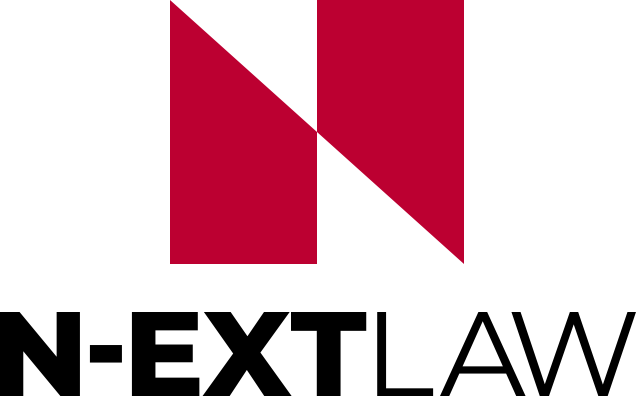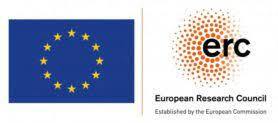In this blog, Amy and Nena give an overview of our ongoing PAR study in the Netherlands. They reflect upon the knowledge gathered through recent sessions held by the N-EXLAW team in connection our study participants, detailing the key outcomes. It further provides information on current projects resulting from these consultations. These include Profit in Purpose-Driven Enterprises, the proposal for a Transition Reserve, Patagonia and Steward Ownership, and a Non-Extractive Legal Form. This blog concludes by outlining the next stages of our research and what the team has planned for the near future.
by Amy Lazell & Nena van der Horst
What is PAR?
The N-EXTLAW Project adopts Participatory Action Research as our main methodological approach. As part of this, we work with economic actors currently practicing N-EXTs (non-extractive economic practices) to collectively generate knowledge on the ways law affects the pursuit of their sustainable mission. We then use this knowledge to collaboratively generate policy proposals addressing the main legal obstacles our participatory community wants to tackle. You can read more about the specifics of PAR on our website here.
To compare the ways non-extractive principles can be supported by different legal systems, we are conducting PAR studies in the Netherlands, Italy, Croatia and Norway. In early 2022, we commenced our first (and largest) PAR Study in the Netherlands. Currently we are beginning our study in Italy.
Continue reading below to learn about the different stages of our Dutch PAR Study. You can also read a summary of our previous and ongoing outputs resulting from these workshops.
Workshop July 2021: Understanding, applying and experiencing PAR
In preparation for the commencement of our 2022 study, we hosted a workshop on ‘Understanding, applying and experiencing Participatory Action Research (PAR): A cross-disciplinary conversation’ in July 2021. The purpose of the this was to learn more about the benefits and challenges of PAR and how the approach applies across varying regional contexts and types of inquiry. You can read more about this workshop and the scholars/practitioners who attended in this earlier blogpost.
We have also created a detailed Protocol laying out the intended purposes and different stages of the Netherlands study and built a community of actors all of which carry out non-extractive practices within the finance, housing, care, energy, and food sectors. These community members were then invited to our first online participatory workshop in January 2022.
PAR session 1: Identifying and prioritising legal-economic enablers and barriers
In our first workshop, we asked our participants to collectively identify and prioritise the common legal-economic problems impacting their sustainable business operations. The ultimate purpose of this was to decide which issues should inform the project’s research and action agenda for the upcoming year. This discussion was accompanied by a short presentation of 16 core themes identified by the N-EXTLAW team as common issue areas. Identification was based on individual conversations previously carried out with each community member.
Many insightful discussions were held in both plenary and breakout groups on these various issue areas. As a result, we identified several key topics grouped under the headings of ‘Setting Up N-EXTs’ and ‘Running N-EXTs.’
PAR session 2: Setting Up N-EXT’s – Non-extractive legal form, profit & financing
This first grouping was further explored in our second workshop held in March 2022. Hosted in a hybrid format, this session focused specifically on a ‘Special Legal Status’ for Organisations with a Social Purpose, Profit and Financing. Participants openly discussed each of these three topics and were asked to collectively list various action points and proposals for change, such as a new legal form, alternative financing options and benefits/exemptions for N-EXTs.
Having established this list of action points, we are currently pursuing the four following projects:
- Profit in Purpose-Driven Enterprises: Nena’s four-year PhD project studies how purpose-driven enterprisesreinvest and/or distribute their profits, and how this impacts decisions made in the enterprise, the organizational culture and wider society. Currently Nena is working on her empirical research, conducting interviews and case studies with several purpose-driven organizations in the Netherlands.
- Transition Reserve: Marija and Nena are working on a paper regarding the introduction of a Transition Reserve under Dutch law – a mandatory legal reserve that requires large companies (at least the 20 largest emitters) to keep enough money on their accounts to bear the cost of the sustainability transition. A working paper with the associated policy proposal is already available on our website.
- Patagonia: steward ownership and taxes: Marija and Nena are currently writing a series of blogposts on the decision of Patagonia’s founder to transfer all shares with profit rights to a charitable climate foundation, and all the shares with voting rights to a Purpose Trust. The first blogpost will analyse the question whether this is tax avoidance, and the second blogpost will analyse the steward ownership structure.
- Non-Extractive Legal Form: Currently, we are in the initial stage of a collective project with partners in the Netherlands which will critique and propose an alternative to the Dutch proposal for the BVm (social purpose private limited liability company). More information will follow later!
PAR session 3: Running N-EXT’s – Sustainable Contracting & Experimental Regulation
Our third hybrid workshop took place in June 2022, focusing on two of these four core areas: ‘Non-Extractive Contracting and Experimental Regulation’. In this session, sustainable contracting expert and lawyer, Karlijn Schuttelaar, took the group through the concept of sustainable contracting and discussed how such contracts may differ within three different example scenarios: between equal partners, with a worker disadvantaged on the market, and with a supplier of raw materials from Africa. In the second half of the workshop, the N-EXTLAW Team presented a proposal for ‘experimental regulation for non-extractive social innovations’, which the group collectively discussed. This included a consideration of which issues/sectors such regulation should apply to, who could qualify for it and under what conditions, and how this regulation could be implemented.
Based on the outcome of this session, we are currently working the two projects:
- Non-extractive contracting: Jie Ouyang was a research intern for the N-EXTLAW project from April – August 2022. In this time, Jie worked on a paper regarding non-extractive contracting. The working paper is currently being revised and the final version will be uploaded to the website soon – so stay updated!
- Experimental regulation for N-EXT’s: Marlie Janssens, N-EXTLAW research intern from April – July 2022, has written a working paper on experimental regulation for N-EXT’s. In 2023, the N-EXTLAW team will develop this project further (based on concrete examples) into a policy brief for the Dutch government. In Italy, the N-EXTLAW team (specifically Mario and Marija) are currently developing a similar project.
PAR Session 3: Running N-EXT’s – Finance
The remaining core area, Finance, was discussed during our fourth workshop in July 2022. This workshop consisted of a Finance Roundtable, led by representatives of our community currently working in this sector. The roundtable consisted of two separate panels, one on concrete solutions for less extractive capital markets and another on non-extractive banking. Both panels provided insightful and inspiring discussions on these topics.
Following from this session, the N-EXTLAW team focused on the difficulties of attracting finance for non-extractive economic practices.
- Levelling the Playing Field: Making the BVm viable: N-EXTLAW intern from April – July 2022 Zafar Shaikhli recently wrote a blog post for the N-EXTLAW website on the difficulties faced by social enterprises in attracting financing, and how the current proposal for the social purpose private limited liability company (BVm) fails to address these difficulties. Zafar provides suggestions for how the proposal can be improved.
What’s next?
Currently, we are working on the above-mentioned policy briefs and open-access publications regarding experimental regulation for non-extractive economic practices, a non-extractive legal form, non-extractive contracting, the Patagonia case, the transition reserve, and profit in purpose-driven organizations. In addition to these projects, Vladimir is investigating the concept of non-extraction in the Dutch food community.
In 2023, a two-day workshop will be organized where we will present the policy briefs and publications resulting from this work to our community and to policymakers at the municipality, national and EU-level. An update on this will follow soon.
We are very grateful to our community for all the time and energy they have dedicated over the past year and warmly thank them for all their involvement.



